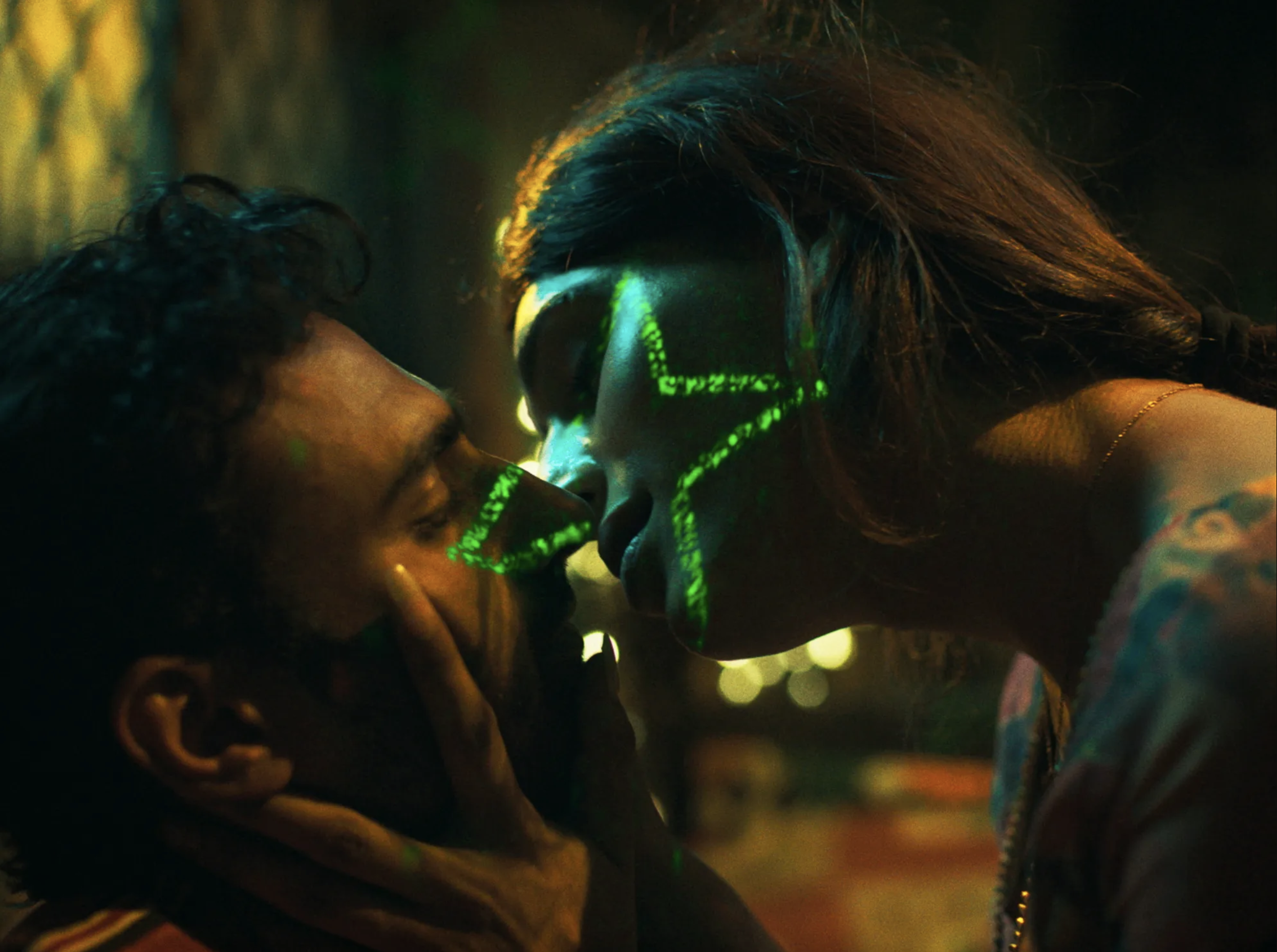JOYLAND
Directing: A-
Acting: A-
Writing: A-
Cinematography: B+
Editing: B+
Joyland is an ironic title, I guess. There’s not much the way of joy in this movie. There are flashes of it, for sure, but always in the face of pressure to suppress it. Maybe director and co-writer Saim Sadiq went in a different direction with the title because Melancholia was taken. Joyland is a very, very different movie, but nevertheless it maintains an almost dreamlike, melancholy tone from start to finish.
Joyland is a notable film for a multitude of reasons, not least of which is its co-lead, Alina Khan, the first transgender actor to be cast in a lead role in a Pakistani film. In certain ways, it takes Pakistan’s evolution to warp speed in comparison to American cinema: this is also a trans character, actually played by a trans actor. They’re doing representation properly right out of the gate.
That’s not to say all the depictions in this film are comfortable. There’s a moment when another character says of Biba—without judgment, mind you—“She’s not a real woman.” But this is the thing: of course she’s a real woman, but these characters don’t have the sophistication of knowledge to understand that. I immediately thought about the need to meet people where they are, when trying to invite them to some greater understanding.
Joyland may just do that, for at least some viewers. It’s an extraordinary achievement in Pakistani cinema, creating a nuanced portrait of family, gender, sexuality, and how all of these things intersect. The central character, Haider (Ali Junejo), is an incredibly meek young man, seemingly satisfied with his domestic duties as his wife Mumtaz (Rasti Farooq) is the breadwinner in their relationship, happily working a job at a salon. Haider and Mumtaz live with Haider’s older brother and his wife; their four daughters; and Haider and his brother’s elderly father—none of whom are especially proud when Haider lands a job at an “erotic dance theater.” He’s actually a completely inexperienced backup dancer, but he lies and says he’s the theater manager. It’s at this theater that he meets Biba, and quickly becomes infatuated with her.
One of the more fascinating things about Joyland is how it doesn’t define Haider’s sexuality in particular, basically depicting a kind of fluidity not often seen even in Western cinema. This is in spite of his offensive misreading and misunderstanding of Biba’s circumstances, not understanding her desire to save up for surgery (“I like you the way you are”), and awkwardly attempting a sexual position Biba has no interest in. With such avenues being explored, one can’t help but wonder how well Joyland played in its home country. The saddest thing, maybe, is that it being a mixed bag is kind of a sign of progress.
Joyland examines more than just Haider’s relationship with Biba. His relationship with his father is predictably fraught, as is that with his brother. Most significantly, his landing of a job results in his wife, Mumtaz, getting pressured to quit her job. She is forced to pick up domestic duties; she eventually gets pregnant; she is quickly miserable. Even as Joyland itself pushes boundaries, it reflects the kinds of enforced gender roles that are impossible to escape without drastic, sometimes fatal action.
Haider and Mumtaz’s relationship is fascinating because, through all of this, it stays surprisingly honest and healthy. That’s not to say that Haider can be open about his captivation by Bibi—but, given the nature of their relationship, in a different culture, they might very well have been able to be.
The characters in Joyland are exquisitely drawn, multidimensional and flawed personalities. Their motivations are often at odds, but easily empathized with. In a way, it’s about all of them accepting their fates. Some of them just take unconventional roads to get there. The fateful ending is ambiguous in its meaning, a sort of somber release. This film’s very existence, by extension, ironically offers a kind of hope its characters cannot find.
An example of Joyland’s indelible imagery.
Overall: A-




